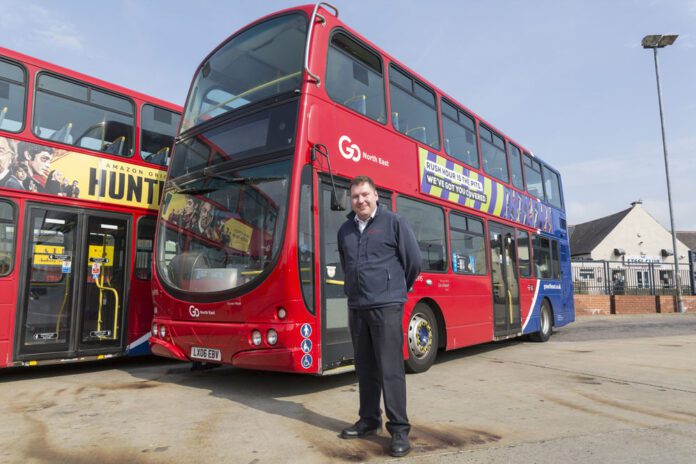Go North East has a long-standing history in the region, dating back to its establishment in 1987. For decades, the company prided itself on its commitment to providing reliable and affordable transportation services to local communities in the North East of England. However, in recent times, Go North East has undergone a noticeable shift away from its reliability, services are often delayed or don’t turn up at all – and to make matters worse, their drivers have made the decision to strike for better pay and working conditions – leaving communities throughout the region without means to travel to appointments, go to work, and in some more rural communities there have even been people who have not been able to simply go shopping for food and essentials.
Go-Ahead, the parent company of Go North East, has faced widespread criticism for its treatment of the community and its workforce. Despite reporting profits of £85 million, the company has declined to provide its workers with a fair wage.
At Go North East, the drivers’ rate of pay stands at just £12.83 per hour. In stark contrast, workers performing the same job at Go North West earn £15.53 per hour. This significant pay disparity results in Go North East workers being undervalued for their work, with a loss of £105 per week on a 39-hour week, equating to £5,475 per year.
Unite’s research further reveals that Go North East employees have not received a pay increase in over five years when adjusted for inflation, and their salaries have, in fact, decreased by five percent since 2018. Meanwhile, the highest-paid director within the company earns over £188,000. These facts illustrate a substantial pay gap and raise questions about fair compensation and wage equality within the company.
Go North East business director, Ben Maxfield, expressed the company’s perspective, stating, “Drivers wanted an above-inflation deal, no changes to conditions, and top-of-the-market rates.” The company claims to have responded positively to these demands, which raises questions about the ongoing labour dispute.
Despite the company’s response, the union representing Go North East drivers has decided to proceed with indefinite industrial action.
Unite general secretary Sharon Graham said:
The Go-Ahead group has plenty of money and doesn’t hesitate to pay its CEO a six figure salary but won’t stump up the cash for those who do the real work driving its buses.
Go North East was built on the backs of workers on Tyneside and yet it has now forgotten the communities that helped build its transport empire. Unite will be fully supporting our members in their fight for fair pay.
Unite regional officer Mark Sanderson added: “This strike, is all of Go North East’s making. They could come back to the table with an offer that addresses the current low pay at Go North East, but its refusal to do so speaks volumes about the low esteem they hold the people of the North East in.”
Workers’ union Unite, which called the action, said the company had “dragged their feet and refused to make a decent pay offer”. Last week members rejected the latest offer by 81% – on a turnout of 93%.
Public support for Go North East’s drivers demanding fair wages on par with their Go North West counterparts is strong. However, the ongoing strike is significantly impacting the daily lives of local residents, especially during challenging colder months when walking or cycling is not a practical option for many.
While public sentiment stands firmly behind the drivers seeking pay equality, it’s essential to recognise the real-life disruptions caused by the protracted strike. The inconvenience faced by the community, including disruptions to work and essential services, underscores the urgency of resolving the pay gap issue.
The impact of limited public transport is resonating throughout villages, towns and cities in the region, with many local businesses feeling the strain. Businesses are reporting that the reduced availability of public transportation is taking a toll on their customer base and overall economic activity. The scarcity of reliable transportation options has led to reduced foot traffic and accessibility for potential customers, ultimately hampering the growth and sustainability of local businesses. This issue highlights the interdependence between public transport and the economic health of communities, underscoring the need for comprehensive and dependable transportation services to support both residents and local enterprises.
Since October 28, all Go North East services, with the exception of contracted school routes, have been suspended indefinitely as workers initiate a strike over pay disputes.
Go North East’s inability to address the pay disparity and the subsequent disruption highlights the need for a prompt and fair resolution. The well-being and convenience of those relying on these essential bus services, especially during colder months, should be a top priority.


























